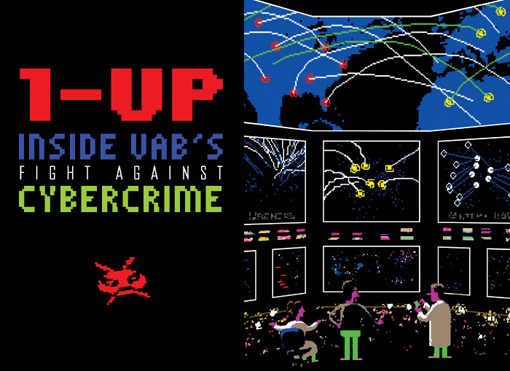UAB Magazine Online Features
Rethinking Depression
UAB Researchers Targeting New Ways to Define, Treat the Disease
By Matt Windsor

On September 12, 2008, bestselling author David Foster Wallace, whose 1996 novel Infinite Jest was considered one of the great works of the late 20th century, hanged himself in his California home. Wallace’s father told the New York Times that the 46-year-old writer had been severely depressed for a number of months. For 20 years, Wallace had been taking medication to control his depression, which had allowed him to be productive, his father said. But side effects had led him to wean himself from the medication in June 2007. The depression returned, and after trying several other treatments, including electroconvulsive therapy, Wallace resumed taking his initial medication, only to find that it was no longer effective. “He just couldn’t stand it anymore,” his father told the Times.
Good Company
Alumnus Helps Start-Ups Find Success
By Charles Buchanan
 UAB alumnus Drew Goneke (left) and Matthew Dyar (center) of South Cypress are working with UAB alumnus Matt Wright (right) to realize their big idea: an Internet-based flooring company. Wright has helped several entrepreneurs launch Birmingham-based startup companies.
UAB alumnus Drew Goneke (left) and Matthew Dyar (center) of South Cypress are working with UAB alumnus Matt Wright (right) to realize their big idea: an Internet-based flooring company. Wright has helped several entrepreneurs launch Birmingham-based startup companies.
Look around, right now. Could the person sitting next to you have the idea for the next Facebook or Amazon inside his or her head? Matt Wright’s mission is to unlock those ideas and help potential entrepreneurs create vibrant new companies.
After graduating from the UAB School of Business in 2001 with a finance degree, Wright worked his way up the banking ladder, working on an equity trading desk and managing a hedge fund. Eventually he founded NuVault Financial, which specializes in management consulting and investment banking. “I advise small companies on ways to grow their business through finance, efficiencies, or everyday operations,” says Wright. He also serves as associate director of the Birmingham Angel Network, an organization of business leaders who invest resources and expertise in local start-up companies.
“Globalization is here, and the only way for the United States to compete is through innovation,” Wright says. “Our goal in the Angel Network is to help these new companies on the front end, mentoring entrepreneurs who may not understand how to commercialize an idea. I tell them that starting a business and running a business are two different things. You’ve got to understand the differences in order to be successful.”
Blood Meridian
Tracing Malaria’s Epic War with Humanity
By Matt Windsor
Lori Cormier knew she had to hurry. The young anthropologist had already seen several life-threatening malaria infections during her time among the Guaja hunter-gatherers of the Brazilian Amazon. Seizures were not a good sign.
 Malaria requires both mosquito and human hosts to survive. Mosquitoes ingest the parasite that causes malaria when they bite humans or wild primates; the parasites reproduce in the mosquito and travel to its salivary glands, where they infect the mosquito's next victim. In these human or wild primate victims, the parasites enter and reproduce in liver cells, then place male and female versions of themselves in the bloodstream, waiting for the next mosquito bite to start the process again.
Malaria requires both mosquito and human hosts to survive. Mosquitoes ingest the parasite that causes malaria when they bite humans or wild primates; the parasites reproduce in the mosquito and travel to its salivary glands, where they infect the mosquito's next victim. In these human or wild primate victims, the parasites enter and reproduce in liver cells, then place male and female versions of themselves in the bloodstream, waiting for the next mosquito bite to start the process again.
Click image to see larger version and see "A Vicious Cycle" for more on the process.
“I had brought a few medical supplies with me into the field, and when people were very ill they would come to me,” says Cormier, who was a doctoral student studying the Guaja language and culture in the late 1990s and is now an associate professor in the UAB Department of Anthropology.
Reality Bites
Malaria is caused by a cunning parasite with a complex lifecycle; in fact, it bears an uncanny resemblance to the villains in the Alien movies. Here’s how it works: A female Anopheles mosquito, carrying the parasite Plasmodia in its salivary ducts, bites a human. The parasites move into the person’s bloodstream, where they migrate to liver cells and reproduce. A few days later they emerge in the thousands from each cell and invade nearby red blood cells, where they grow and later burst out again to infect new red blood cells. The process causes high fever, convulsive chills, anemia (not enough red blood cells), and flu-like symptoms, usually 10 days to four weeks after the infection begins. (See “A Vicious Cycle,” below.)
When a five-year-old child was rushed to her hut one morning with seizures, Cormier sprang into action. “I had aspirin, but that doesn’t work fast enough,” she says. “So I ran to the river and soaked a blanket in cold water to try to cool her.” Eventually, the child recovered, but for the rest of her life the fever would threaten to return.
1-Up

By Matt Windsor | Illustrations by Tim Rocks
There's big money to be made in the computer industry these days. In fact, someone with the right skills and the wrong motives can expect to pull in millions every week by engaging in cybercrime.
|
Can you stop the bad bugs? Fight back in this video game inspired by the work of UAB researchers |
Mega-salaries don’t come without risks, of course—including the increasing likelihood that your efforts will attract the attention of UAB researcher Gary Warner and his dedicated team of caffeine-fueled student analysts. In a lab overlooking the UAB football practice field, Warner’s undergraduate and graduate students are playing a high-stakes game of their own, matching wits with criminal masterminds a world away. The students’ efforts have been recognized with official thank-yous from Facebook and the FBI, and job offers from Microsoft, PayPal, and a who’s who of the current hot tickets in Silicon Valley.
Read on to learn about some of the group’s most notable exploits—and how you can become a digital detective with UAB’s new master’s degree program in computer security.

